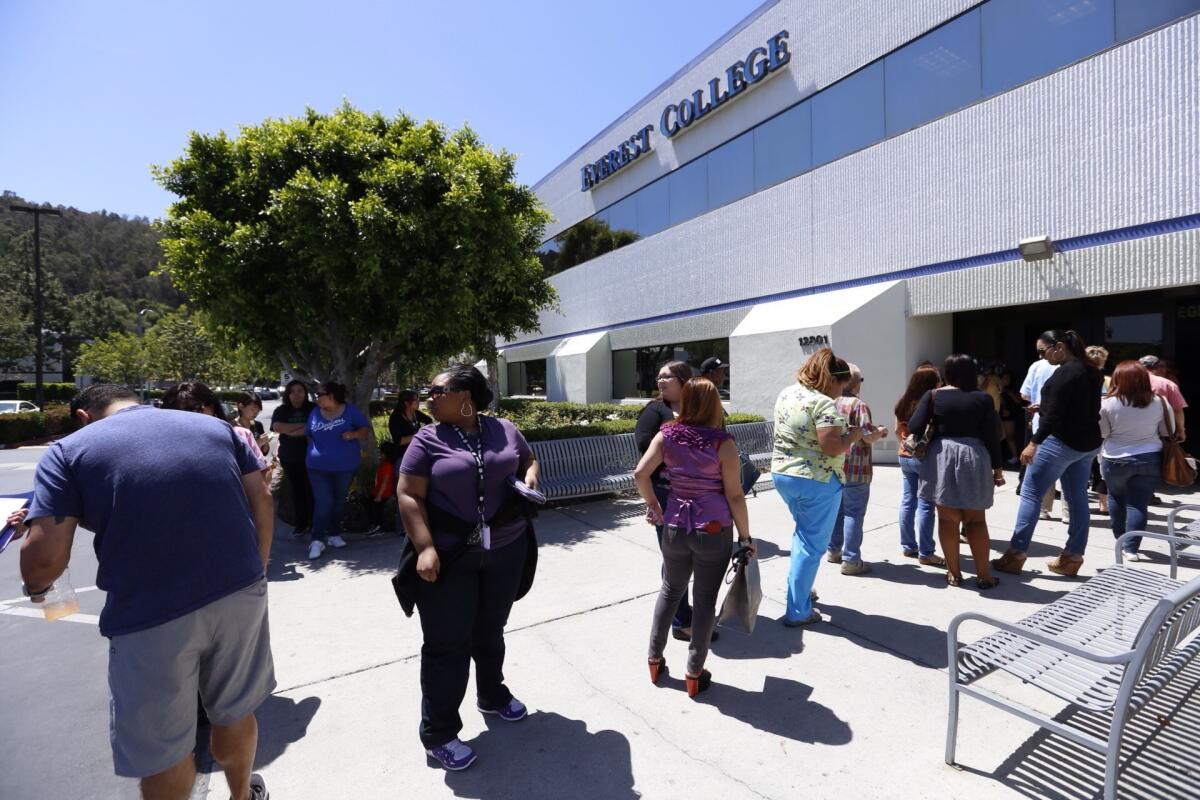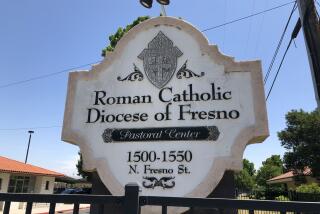Corinthian Colleges files for bankruptcy

Corinthian Colleges Inc. formally filed for bankruptcy Monday, a week after closing its remaining two dozen campuses and leaving 16,000 students scrambling for alternatives.
The move brings closure to years of troubles for the Santa Ana company, one of the nation’s largest for-profit education providers, which still faces lawsuits and investigations by more than a dozen state attorneys general and federal authorities over allegations of fraudulent marketing to recruit students.
In its Chapter 11 bankruptcy filing in Delaware, the company listed assets of $19.2 million and liabilities of $143 million. According to the company’s chief restructuring officer, William Nolan, the U.S. Department of Education sought to impose “significant financial and operational conditions” on Corinthian and potential buyers of its remaining schools in recent months that made a final sale impossible.
Corinthian has very few real estate assets that can be sold off to generate cash. Over the last few years, as the company struggled with declining enrollments, Corinthian sold off many of its buildings and leased them back.
Corinthian brought on FTI Consulting Inc., which worked on the bankruptcy of MF Global Holdings, the brokerage firm run by former New Jersey Gov. Jon Corzine that collapsed in 2011 after losing $1.6 billion of its customers’ money.
Corinthian has been in free-fall since last June, when the Department of Education restricted its access to federal financial aid amid concerns that the company was falsifying job placement rates for graduates. The company sold off 56 campuses to a nonprofit student loan servicer in November but was unable to sell off its remaining schools.
Twitter: @c_kirkham
More to Read
Inside the business of entertainment
The Wide Shot brings you news, analysis and insights on everything from streaming wars to production — and what it all means for the future.
You may occasionally receive promotional content from the Los Angeles Times.











